Context
The world is full of interesting things to be discovered, learned, practiced. As one searches for new input, seeing what others are doing can be a source of inspiration, and advice from someone more experienced can be of great help. Therefore I’d like to share what keeps me moving, learning, living, and offer hints and resources for the potentially interested.
Apart from what’s shown here, be sure to also check out the webring linked at the bottom of the page.
Letters
A 𝖆 𝒜 𝚊 α あ ア 安 ㌁ 알 א ∀ 🄰 ㎂ ㏂ ℀ 🂡 🍙

Writing systems are fascinating, typography is aesthetic, and letterpress printing is just cool in a steampunk-y, craftsman-y way. If you’re also into things like that, find some goodies down below.
Languages
Japanese is written in a mix of three character sets; two syllabaries and a set of logographic characters. Example: the word for eraser, 消しゴム, starts with the logograph 消 meaning “to erase“, continues with the hiragana letter し (for grammar reasons) representing the sound “shi”, and ends with the katakana letters ゴム representing the sounds “go“ and “mu“ (“gomu” ≈ “gum”) respectively. Depending on stylistic choice, it is also possible to switch between the three sets of symbols. For example, the Japanese Wikipedia article on seals contains the word pronounced “hanko” as “はんこ” in hiragana, “ハンコ” in katakana, and “判子” in kanji.
In Korean, letters are constructed from consonant and vowel components. For example, the letter 독, pronounced “tog”, consists of ㄷ, ㅗ, and ㄱ. So you type those three one after the other, and they turn into 독. When it comes to pronunciation though, the consonants at the end of letters can “move syllable”. The Korean word for Germany, 독일 (“togil”), for example, is not “tog” and “il” (letter by letter), but rather “to” and “gil”. A German person, 독일인, then is “to”, “gi”, and “lin”.
Letters and Technology
Fun things happen when the madness of human driven writing systems is reflected in rigid structures of technological standards, like Unicode.
- Unicode contains “ghost characters“
- The Unicode block CJK Compatibility contains units of measurements and other terms in single characters in Japanese. For example, ㍌ reads “mega” in the upper line and “ton” below. (Here are some cryptic shenanigans with these “kumimoji”.)
- Punycode is a fun character encoding used e.g. in non-Latin alphabet domain names.
Books
- Writing Systems of the World (Japanese original: 世界の文字)
A nice overview of the types of writing systems allover the world, with explanations and example images of e.g. newspapers.
- Because Internet
On how real time written communication is a novel phenomenon enabled by the internet.
- ユニコード戦記
Telling about the struggles of representing Japan in the negotiations and consortia deciding on the Unicode standard.
- 活版印刷三日月堂(1、2、3、4、5、6)
A series of novels centered around a small letterpress printing shop in modern day Kawagoe, Japan.
Places
- 印刷博物館
The Tokyo Printing Museum — great exhibition and regular letterpress printing “mini workshops” (which is where the banner image above was taken).
- 漢字博物館・図書館
The Kanji museum in Kyoto. Aesthetically really nice exhibition and you can take mini mock-exams of the Kanji Kentei.
Misc
Tabletop Games
Rectify. … Rectify. … Games!

I grew up with Settlers of Catan, and in my twenties found Carcassonne as a second “all-time favorite”. I also really like “Stadt, Land, Fluss”, the German equivalent of the word game categories. Below are some pointers and personal projects regarding games.
- Catan
- Carcassonne
- Carcass∞nne
A minimalistic web interface to play Carcassonne with infinite tiles.
- Citétris de Carcassonne
A work in progress implementation of Tetris with Carcassonne tiles.
- Stadt, Land, Fluss
- Seit wann gibt es Stadt, Land, Fluss?
Research project to determine the origin of Stadt, Land, Fluss.
- Stadt, Land, Fluss Kategoriekarten
Card designs for choosing categories in a game of Stadt, Land, Fluss.
- Stadt, Land, Fluss Web
A work in progress web implementation of Stadt, Land, Fluss where extra points are given based on the order of player answers per category.
Some more general things:
- Events I like
- Some Japanese games I own
Knowledge curation
wikiwiki

I maintain a personal wiki in the form of interlinked Markdown files, synced between desktop and mobile via Git. Currently Obsidian serves as the editor/viewer. Previously I used gitit (desktop only).
At work, I have experienced two quite dissimilar wiki cultures.
- Semantic MediaWiki (2019 — 2024)
- High upfront cost (for defining and implementing a data model)
- Some degree of inference of implicit knowledge
- Open source
- My experience
- worked well to organize a research group
- editing and reading happen at different times / you “store” knowledge that is “retrieved” at some later point in time
- page forms syntax gave me headaches
- Cosense (2024 — now)
- Superb for real time collaboration
- Somewhat challenging to keep information up to date/synced across a wiki
- Closed source; requires Google account
- My experience
- works great as the knowledge base of a remote-first organization
- feels like everyone’s notepads amagamate into a living system
- fun to use
Meat sack storage: use Anki to prevent data loss.
Parkour
“Recontextualizing public urban space as a playground instead of something merely functional.” (Source)

Just look for people in your area doing parkour. In my experience such groups are extremely supportive towards newcomers. If you can’t find anyone to train with, start on your own — you might find followers soon. :D
To get an idea of what parkour is, watch People in Motion. tl;dw: it’s playing with one’s environment by moving around.
Shameless brag: I used to do double kongs.
Slacklining
|—————————|
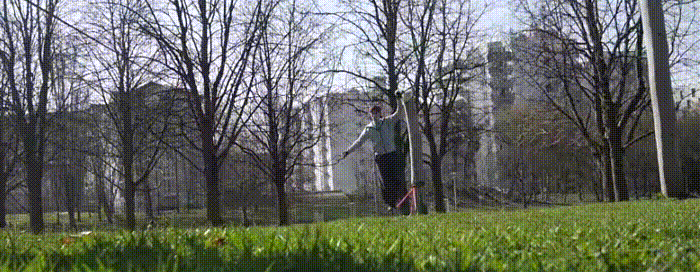
Fancy fidgeting
🖊, 🎲, 🃏

Pen spinning
Speedcubung
Flourishing
Keyboards
High quality input devices. :3
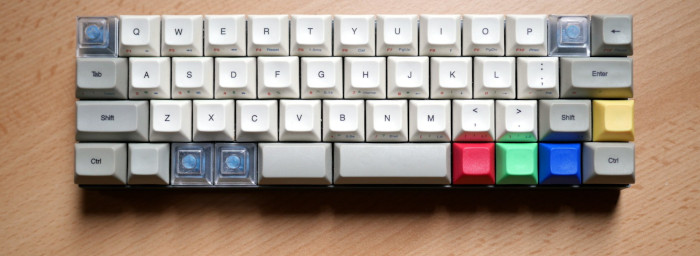
In terms of mechnaical keyboards, I used to use a SteelSeries 7G (MX Black) → a Leopold FC500RT/AB (MX Brown) → a KBC Poker (MX Blue) → a Vortex CORE (MX Blue, depicted above).
Over the years though, ThinkPads made me a sucker for trackpoints, which is why I currently use a ThinkPad TrackPoint Keyboard II as my daily driver, and occasionaly switch to a HHKB Studio.
Random tidbits:
Japanese
orz

Prepare to face three different, partly redundant, simultaneously used scripts; characters made up of more than 20 strokes — whose order you have to get right btw. — with various ways to read and interpret them depending on their current context; and over 30 common, individual ways to count things, each associated with a group of things it’s used for.
On the other hand pronunciation is super consistent (looking at you, English), grammar is totally manageable and there are awesome things like the word for “influence”, 「影響」, being written with the characters for “shadow” and “resonance”; or “strategy”, 「戦略」, with “battle” and “shortcut”. Also, the word for “crowd of people”, 「人混み」, has the same pronunciation as “people garbage”.
Appetizer: NativLang’s three part series on writing Japanese
“It’s the most bizarrely complicated writing system within a system ever devised by humankind.”
Overview
Guides
Use
Absorb
- About Japan (this is a dark playground, try to get to a point where content in Japanese is fun)
- In Japanese
Interact
- Online
- Offline
- Meetup (try to find meetups where description/details/etc. are only given in Japanese)
- connpass (aimed at engineers)
- Peatix
- TwiPla
My personal Japanese progress has it’s own place in the projects section.
(Urban) Exploration
Because it’s there.
To get an idea of what it is about, watch Crack The Surface - Episode I and Episode II.
In short, it is the exploration of man-made stuff. Objects of interest vary as much as reasons to do it I guess. For me, personally, it’s about adventure, appreciation and to some extend photography. Sadly though, I only very rarely got around to do it so far.
2008 > trains
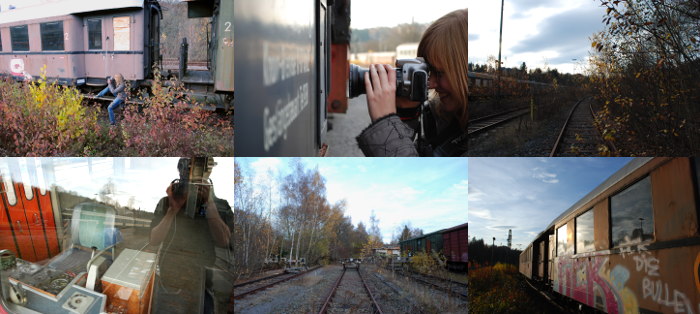
2011 > more trains

2012 > gravel plant
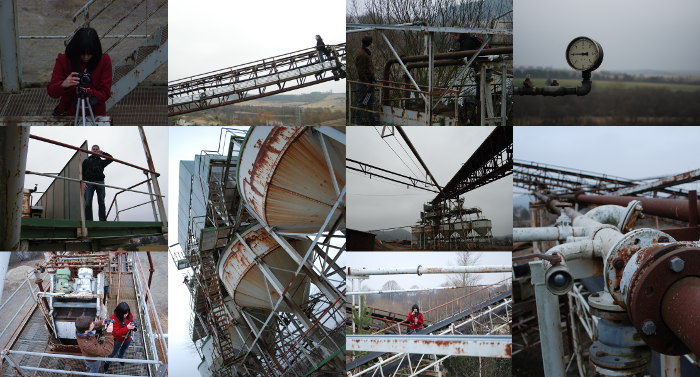
Lock picking
Locks are meant to keep honest people honest.
For a written intro into lock picking take a look at the MIT Guide to Lock Picking. If you prefer video, a great starting point is Schuyler Towne’s video series Locks: Basic operation and manipulation.
Further places to look for interesting content include TOOOL (The Open Organisation Of Lockpickers), /r/lockpicking and the DEF CON Media Archives Portal, where you can find a lot of recorded talks on the subject of lock picking and physical security in general.
Speedrunning
Playing through games quickly, skillfully, and legitimately.
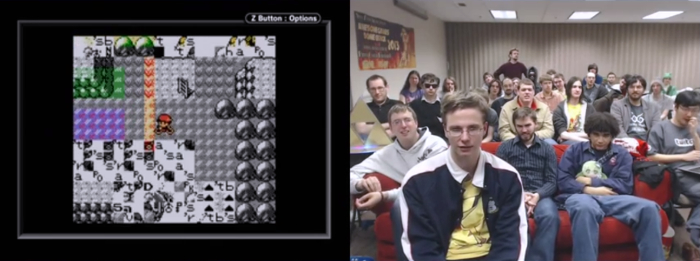
As far as I can tell the places to go to for speedrunning content are the Speed Demos Archive and SpeedRunsLive. If you want to get a general idea of what a speedrun is and what a speedrunner does, take a look at Portal Done Pro and the Portal Done Pro - Commentary Video. Note that this run does not comply with the rules of SDA and is not listed there. Nonetheless does it give a nice glimpse into the world of speedrunning. A very entertaining way to learn a bit more can be following one of SDA’s marathons, where a group of speedrunners plays through a ton of games throughout several days. Most of them comment on what they are doing while playing, so you get an insight into what the key techniques are for running a particular game.
Apart from speedruns gathered at SDA, there are also runs called TAS — tool-assisted speedruns. I don’t know a lot about them, but I guess TASVideos is a good resource to start with.
I myself never did serious speedrunning. Casual (and old) stuff:
Remix culture
“Copyright is brain damage.“ (Source)
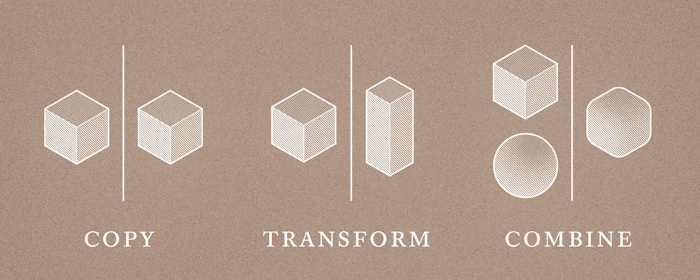
Maybe not a hobby in the traditional sense, but something I would like people to be more aware of and where I try to lead by example. Use (and thereby spread) stuff that is permissively licensed (e.g. muisc), buy DRM free whenever possible, release under permissive licenses yourself.
If you haven’t seen it yet, watch Everything is a Remix. Further down some very specific realms of remix culture.
Doujinshi
Not only what brought the concept of drifting trains into this world, but also a nice example especially worth highlighting to western audiences of a healthy, living remix culture that is not being held back by ignorant backfiring corporate efforts.
“Doujinshi is […] like celebration, an ongoing fan party. […] in America, grumpy rights holding companies shut down the party by calling the cops. In Japan, companies let the music play because they realize the party’s in their honor.” — Tofugu
Also: Copyright and Comics in Japan: Does Law Explain Why All the Cartoons My Kid Watches are Japanese Imports?
AMVs
No connection to licensing and legality here. Just fun content if it’s your cup of tea. Quality AMV sources: amvnews.ru and the Recommended AMVs subforum on animemusicvideos.org.
Example AMVs:
| Creator |
Title |
Source |
Download |
YouTube |
| Hagaren Viper |
This Is Halloween |
Soul Eater |
💾 |
▶ |
| Gorz |
Beauty And A Glitch |
Fate/stay night: UBW |
💾 |
▶ |
| Shin |
Nefarium Psychologica |
Mahou Shoujo Madoka Magica |
💾 |
▶ |
| Shin |
Mahou Shoujo Requiem |
Mahou Shoujo Madoka Magica |
💾 |
▶ |
| Kisanzi |
The Nightmagi Cometh |
Mahou Shoujo Madoka Magica |
💾 |
▶ |
| RenaSun |
Externalize |
Chihayafuru/mixed |
💾 |
▶ |
| lokkiclu |
Title Goes Here |
Bakemonogatari |
💾 |
▶ |
| Okami |
Futuristic Lover |
Bakemonogatari |
💾 |
▶ |
| Nostromo |
Binary Overdrive |
Genius Party Beyond |
💾 |
▶ |
| Nostromo |
Distant Echo |
mixed |
💾 |
▶ |
| EvilSpiritAMV |
Visible |
mixed |
💾 |
▶ |
| Padre |
Whack |
One Punch Man |
💾 |
▶ |
| 007 Vegita |
Race Against Time Trailer |
Dragonball Z |
💾 |
▶ |
| seriy |
Affective Schoolgirls |
Nichijou |
💾 |
▶ |
| Umika, ZEVS1993 |
Our Tapes |
mixed |
💾 |
▶ |
MOAR
Stuff that I was into, want to get into, am into but lack usable content to present or motivation to create a section for, is represented somewhere else on the site, etc.
- linux
- free and open-source
- it security
- sharing economy, collaborative consumption, crowdsourcing
- i18n/l10n
- geocaching
- physical security (see lock picking)
- social engineering (psychology, physical security, it security, …)
- freestyle slalom
- tricking












